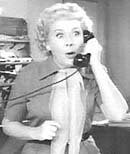FireLance
Legend
Frankly, if I want to elicit certain types of behaviors from players, I would rather present them with an interesting choice which subtly rewards the behavior I want instead of imposing restrictions or penalties.
If I wanted to encourage arcane characters to use less encounter spells and more daily spells, for example, I might institute the following house rule:
Do be aware of the implications of this and similar house rules, though: fights in which the arcane character does not use encounter or daily spells will be relatively longer and harder, and fights in which he uses daily spells will be relatively shorter and easier. You will need to decide if this is the kind of feel you want for your games.
If I wanted to encourage arcane characters to use less encounter spells and more daily spells, for example, I might institute the following house rule:
For each encounter attack spell that is unused at the end of an encounter, the character gains a cumulative +1 bonus on damage rolls with daily attack spells until the next time he takes an extended rest.
This rewards arcane characters who are more conservative with encounter attack spells with more powerful daily attack spells, which were a hallmark of arcane spellcasters in previous editions, anyway. Do be aware of the implications of this and similar house rules, though: fights in which the arcane character does not use encounter or daily spells will be relatively longer and harder, and fights in which he uses daily spells will be relatively shorter and easier. You will need to decide if this is the kind of feel you want for your games.


